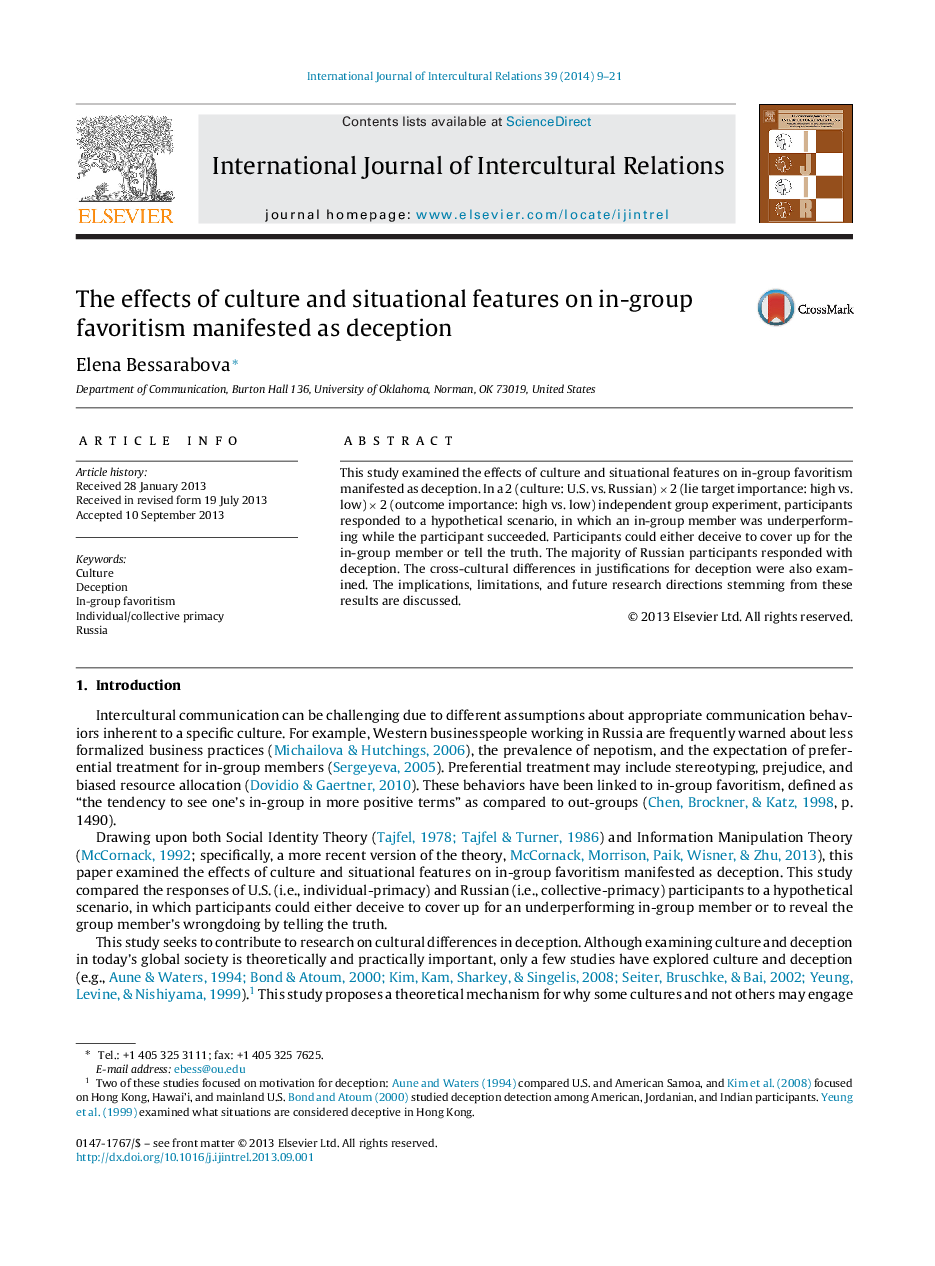| Article ID | Journal | Published Year | Pages | File Type |
|---|---|---|---|---|
| 947134 | International Journal of Intercultural Relations | 2014 | 13 Pages |
•The study examined the effects of culture and situational features on deception.•U.S. and Russian participants responded to a hypothetical scenario.•88% of Russians (vs. 30% of U.S.) participants provided a deceptive response.•Culture explained differences in responses better than situational features.•However, response explanations across cultures were more similar than different.
This study examined the effects of culture and situational features on in-group favoritism manifested as deception. In a 2 (culture: U.S. vs. Russian) × 2 (lie target importance: high vs. low) × 2 (outcome importance: high vs. low) independent group experiment, participants responded to a hypothetical scenario, in which an in-group member was underperforming while the participant succeeded. Participants could either deceive to cover up for the in-group member or tell the truth. The majority of Russian participants responded with deception. The cross-cultural differences in justifications for deception were also examined. The implications, limitations, and future research directions stemming from these results are discussed.
